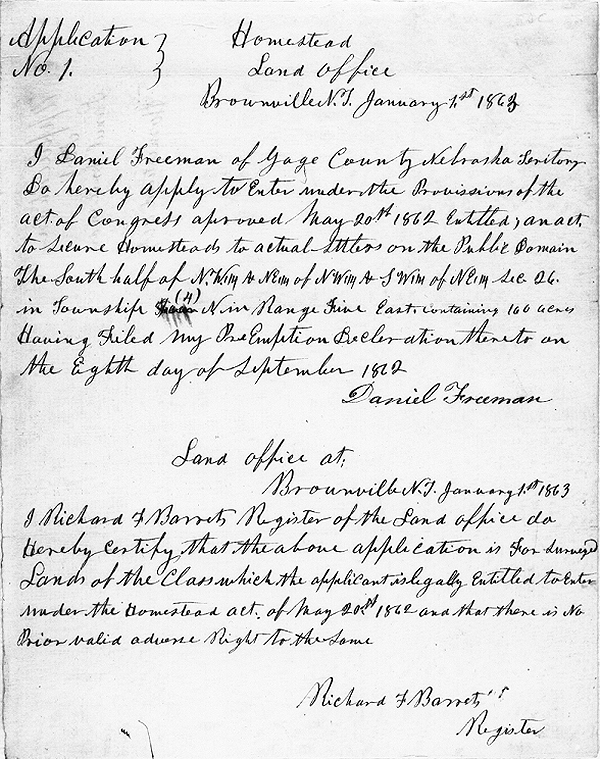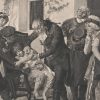The Homestead Acts
While researching your family history, it is not uncommon to find your ancestors moving from place to place. As genealogists, it is important to know what historical events may have occurred to better understand the factors that may be behind a family’s decision to move afar. During the late nineteenth century, the United States government passed a series of laws that gave an applicant ownership of land at little or no cost. Known as the Homestead Acts, they would play a significant role in the dispersement of the population and the acceleration of settlements in the country’s western territory.
The first of these acts, the Homestead Act of 1862, was signed into law by President Abraham Lincoln. The act granted private citizens who had never borne arms against the U.S. government the right to claim 160 acres of surveyed government land. As part of this provision, they were required to improve the plot by building homes and cultivating the land. After five years, the claimant could receive the deed to the land for free, except for a small fee.
A homesteading family
After the passing of the Homestead Act, thousands of homesteaders from all walks of life strove to meet the challenges of improving their “free land.” New immigrants, farmers, former slaves and even women struggled to claim their land. Even though the land was either very cheap or free, many homesteaders did not last the requisite five years due to blizzards, droughts and disease. Of those who began the process, only 40% of applicants would able to see it through to the end and obtain the title to their homestead.
Between 1862 and 1934, the federal government granted 1.6 million homesteads. The number of acres distributed would amount to nearly 10% of all land in the United States. The program was discontinued in 1976, except in Alaska, which continued until 1986.
The first person to file a claim under the Homestead Act was Civil War veteran Daniel Freeman. Freeman also worked as a physician and served as county coroner and county sheriff. It is said that on January 1, 1863 (the day the Homestead Act went into effect), Freeman convinced someone to open the land office just after midnight so he could be the first person to file a claim.
Daniel Freeman’s homestead application (click to enlarge)
On June 21, 1866, Freeman presented proof of his improvements to the land. He had two witnesses, his neighbors Joseph Graff and Samuel Kilpatrick, sign the document to validate his claims.
Document showing proof of land improvements (click to enlarge)
Finally on January 20, 1868, Freeman was granted his Homestead certificate by the land offices.
(click to enlarge)
Have you discovered homesteaders in your family tree? Share your stories with us in the comments below!











 Genealogy Discussions
Genealogy Discussions Genealogy Projects
Genealogy Projects Popular Genealogy Profiles
Popular Genealogy Profiles Surnames
Surnames The Geni Blog
The Geni Blog The World Family Tree
The World Family Tree